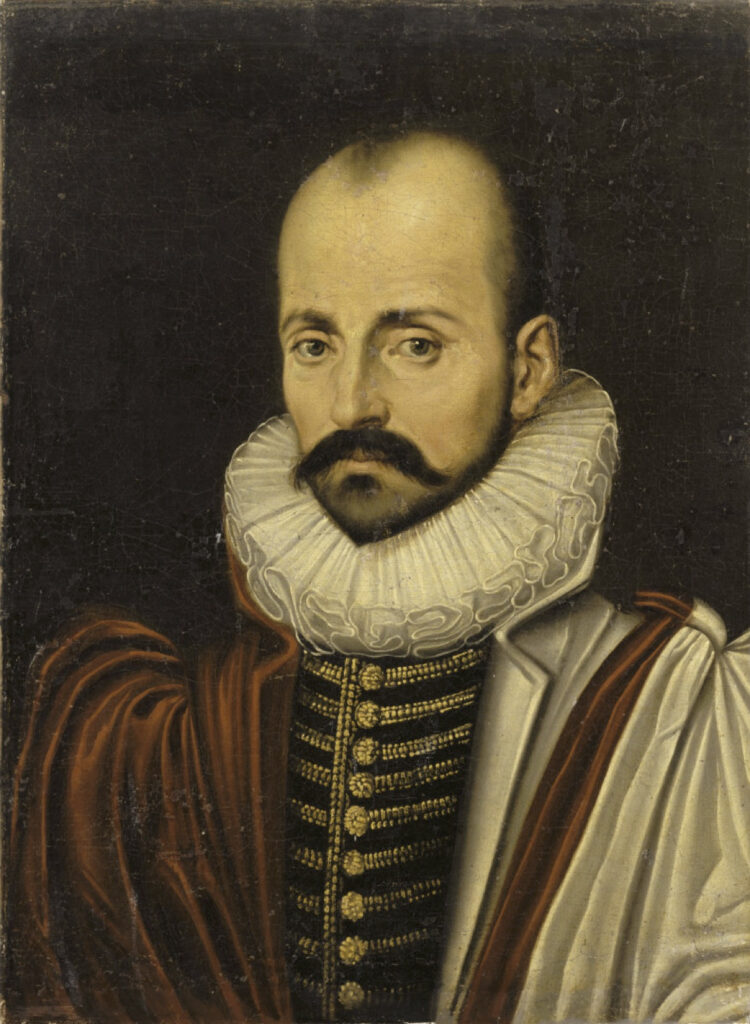We exchange one word for another, often for one less known.
Michel de Montaigne, “13.Experience” in Essays Book III (1588), Bennett, 2017, p. 162
On échange un mot pour un autre, et souvent plus inconnu.
Michel de Montaigne, “Chapitre XIII” in Les Essais Livre III (1588), Quadrige PUF, 1992, p. 1069
Michel de Montaigne, “Chapitre XIII” in Les Essais Livre III (1588), Quadrige PUF, 1992, p. 1069
